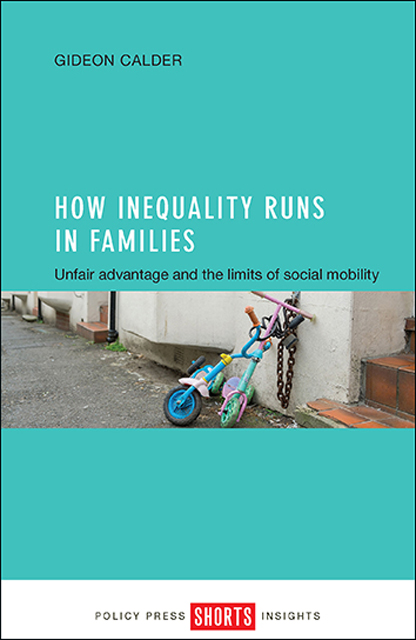Book contents
five - Towards real equality of life chances?
Published online by Cambridge University Press: 21 April 2023
Summary
Our story so far goes like this. Almost everyone seems to have a problem with a society in which family background plays too big a role in people’s life chances. And plenty, prominent voices in policy included, are happy to say in response that we should try to equalise life chances. The family poses a major hurdle to any such project, as well as pressing on us a complex package of other issues pertaining to social justice, because it tends to push back against the achievement of equality. The family is a major engine of class fate. Class fate is rife, and particularly so in countries like the UK that are characterised by widening income inequality. Some people think that all we need for social mobility is genuine equality of opportunity. Yet the latter, though prominent in political rhetoric, is far scarcer and more intermittent in the lived reality of societies such as the contemporary UK. And the meritocracy to which it is often allied is neither as tenable nor as appealing as its widespread endorsement might suggest. Equality of opportunity seems in important respects to be unachievable without greater equality of condition. Social mobility, as an aim, does not, in the end, seem a good yardstick of any kind of equality.
So we’ve built up a picture where social mobility is not itself the answer to class fate. Where does that leave the family, then? And if the redistribution of wealth looks like (at least) a substantial part of the answer, why doesn’t social immobility get tackled that way?
Talking life chances without talking redistribution, or the family
James L. Fishkin defines equality of life chances like this:
According to this notion, I should not be able to enter a hospital ward of healthy newborn babies and, on the basis of class, race, sex or other arbitrary native characteristics, predict the eventual positions in society of those children. (Fishkin, 1983, p 4)
In the US of 1983, as he points out, those predictions could all too confidently be made. From what we’ve seen in this book, the same is true of the UK in the early 21st century. Fishkin presents this definition as one horn of a ‘trilemma’ facing liberal egalitarian theorists of social justice – a kind of dilemma with three corners.
- Type
- Chapter
- Information
- How Inequality Runs in FamiliesUnfair Advantage and the Limits of Social Mobility, pp. 99 - 110Publisher: Bristol University PressPrint publication year: 2016



